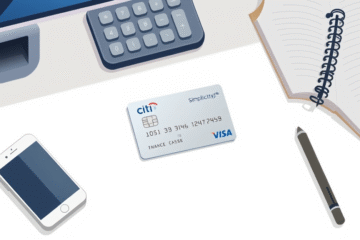Smart Credit Card Tips To Avoid Debt
Credit Card usage can be a double-edged sword in today’s financial landscape.
While they offer convenience and benefits, they can also lead to unmanageable debt if not used wisely.
This article will explore essential tips to help you use credit cards responsibly, ensuring you reap their advantages without falling into financial pitfalls.
From budgeting strategies to payment reminders, these guidelines will empower you to take control of your credit card use and maintain your financial health.
Responsible Credit Card Use Overview
Responsible credit card management is crucial for maintaining financial health.
By understanding the significance of credit utilization and adhering to best practices, you set yourself up for financial stability.
Staying within your credit limit and ensuring that you pay balances in full each month are indispensable practices.
Equally important, consistently tracking your expenses helps avoid overspending and accumulating debt.
Besides financial prudence, these habits enhance your credit score, driving better loan offers in the future.
Common mishaps can undermine your financial health.
Missing a payment date can trigger penalty rates.
Ignoring credit limits may lead to higher interest costs.
Forgetting to track spending invites unexpected debt.
| Key Habit | Practical Action |
|---|---|
| Pay on time | Set up automatic transfers |
| Track your expenses | Use budgeting tools |
Mindful credit card behavior is essential for building a sound financial future.
Core Spending Strategies
Disciplined spending is the first line of defense against debt.
By implementing effective core spending strategies, individuals can take control of their finances and build a foundation for financial stability.
Understanding and practicing these strategies helps foster responsible credit usage and minimizes the risk of falling into debt.
Charge Only What You Can Afford
Every charge on your credit card should align with your monthly budget, ensuring the balance can be paid off fully each billing cycle.
Interest starts the moment a balance is carried, making it crucial to limit your spending to manageable amounts.
Consider a scenario where buying a $1,000 TV seems affordable initially.
However, when the balance isn’t cleared by the due date, with an average 20% APR, the cost could balloon to $1,200 over time.
Leveraging budgeting tools, like those provided by the FTC’s guidance, helps track expenditures and prevent such unnecessary financial strain.
Proactively managing your credit card usage prevents the adverse effects of high-interest rates eroding your budget.
Sticking to purchases you can immediately pay off shields you from these pitfalls, allowing you to enjoy the benefits of credit without accumulating debt.
Budgeting isn’t just about restraint; it’s about strategically planning purchases to ensure your financial health remains intact.
By setting clear spending limits and adhering strictly to them, you create a financial buffer, allowing your spending to remain within the realm of what’s comfortably manageable each month.
This disciplined approach ensures your financial goals remain achievable and your debt in check.
Use Cash for Certain Purchases
Reserving cash for small, discretionary buys like coffee or entertainment tickets can enhance fiscal responsibility through psychological means.
Paying with cash gives a tangible sense of spending, which can create a built-in spending ceiling and reduce the likelihood of impulse purchases.
When you hand over bills, you become more aware of your spending behavior.
This awareness can encourage more thoughtful money management, as examined in the article on CNBC.
This approach safeguards your budget against unexpected expenses and ensures credit is available for significant needs.
Ultimately, cash empowers you to manage finances with flexibility and control over your spending patterns.
Payment Discipline
Managing your spending is an essential first step on the path to financial stability.
Once you have control over your expenses, the next crucial aspect is ensuring you make timely, full payments on your credit card.
By doing so, you stop interest before it starts, keeping your finances healthy and your credit score strong.
Pay Your Balance in Full Each Month
Paying your credit card balance in full each month offers significant financial savings by eliminating interest charges.
When you don’t carry a balance, you avoid paying high annual percentage rates (APRs), which can range from 15% to 25% or more.
According to Chase Bank, you’ll avoid interest if you always clear the statement balance.
Transitioning to this habit not only helps maintain a good credit score but also enhances financial stability by reducing unnecessary expenses.
Moreover, setting up automatic payments to cover the full statement balance can further ensure no payment is missed.
This proactive approach works seamlessly with budget tracking to prevent overspending.
By maintaining a disciplined payment strategy, you’ll accrue substantial savings over time, which could be redirected towards other financial goals.
Embracing the practice of full monthly payments curtails interest accumulation, preserving your funds for future investments.
Set Up Alerts for Payment Due Dates
Setting up payment reminders transforms how you handle due dates by offering timely notifications that ensure you’re never caught off guard.
By configuring reminders through SMS, email, or app notifications, you receive instant alerts highlighting upcoming deadlines, eliminating the stress and inconvenience of missing a payment.
Platforms like FasterCapital’s Reminder Service provide seamless integration, enhancing your financial management capabilities.
Embrace digital reminders, as they are a crucial tactic in avoiding unnecessary late fees and maintaining a healthy credit score.
Furthermore, automatic payment alerts cater to various preferences, whether you favor texts, emails, or app notifications.
By tailoring reminders to your lifestyle, you ensure prompt action on transactions, reducing reliance solely on manual tracking methods.
As digital reminders offer consistency and adaptability, they play a pivotal role in preventing late payments and fostering fiscal discipline.
Tata Neu’s smart alerts are perfect examples of innovation in financial technology tailored to meet individual needs.
- SMS alerts
- Email notifications
- App alerts
- Push notifications
Stay informed, Never miss a due date.
Budgeting and Tracking
To effectively avoid credit card debt, it’s crucial to set a spending ceiling: start by determining your necessary expenses such as rent, utilities, and groceries, ensuring these do not exceed 50% of your income.
The next step is to track discretionary spending: monitor entertainment, dining out, and shopping to maintain balance within your budget limits.
By connecting your financial accounts to a budgeting app like You Need a Budget or PocketGuard, you achieve real-time awareness of spending patterns.
These apps offer features to categorize expenses, but it’s wise to check online for the latest updates.
Additionally, you can employ a spreadsheet for detailed tracking: this allows for greater customization if you prefer manual input.
To streamline this process, set reminders and alerts for payment due dates to avoid late fees.
Incorporating these digital tools will ensure a well-managed budget, empowering you to make informed financial decisions.
Credit Card management is crucial for maintaining financial stability.
By adopting these responsible practices, you can enjoy the perks of credit cards while effectively avoiding debt and ensuring a secure financial future.



0 Comments